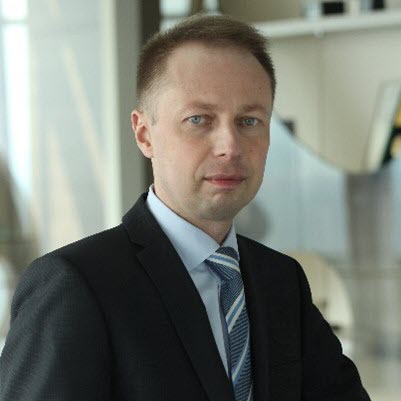The Impact of Russian Cyber Attackers within the Ukraine Situation

Abstract:
On 24 February 2022, Russia invaded Ukraine. The Russo-Ukrainian War is the largest war in Europe since World War II. The aim of the paper is to look at how politically motivated hacking by Russia has been used as part of the Ukraine situation with a focus on the different attack types since the Russian invasion of Ukraine in 2022. The paper will focus on the different groups acting on behalf of Russia, their actions, and techniques. The paper will discuss what their actions mean for the future of cyber conflicts.
AUTHORS

RMIT University
Melbourne, Australia
Univeristy of Johannesburg,
Johannesburg, South Africa
Matt Warren is the Director of the RMIT Centre of Cyber Security Research and Innovation and a Professor of Cyber Security at RMIT University, Australia. Professor Warren is a researcher in the areas of cyber security and computer ethics. He has authored and co-authored over 300 books, book chapters, journal papers, and conference papers. He has received numerous grants and awards from national and international funding bodies, such as AustCyber, Australian Research Council (ARC), CyberCRC, Engineering Physical Sciences Research Council (EPSRC) in the UK, National Research Foundation in South Africa and the European Union. Professor Warren earned his Ph.D. in Information Security Risk Analysis from the University of Plymouth, United Kingdom and he has taught in Australia, Finland, Hong Kong, and the United Kingdom. Professor Warren is a Fellow of the Australian Computer Society.

Mykolas Romeris University,
Lithuania
Darius Štitilis has a Ph.D. in Social Science (Law), is a professor and Dean of the Faculty of Public Governance and Business at Mykolas Romeris University. Štitilis has more than 20 years experience in teaching and researching in the area of IT law (personal data protection, cybersecurity, cybercrime, legal regulation of biometrical technologies, and AI). Štitilis is also an expert with 20+ years experience in international and national research and study projects. Darius Štitilis founded and is currently the head of the study program Cybersecurity Management. One of the last international projects in the field of cyber security, in which Darius Štitilis participated, is one of the four cybersecurity pilot projects financed by the European Commission—the http://sparta.eu project. Štitilis has also contributed to the creation of the Lithuanian cyber security strategy model and was the leader and initiator of the project during which this model was created.

Mykolas Romeris University,
Vilnius, Lithuania
Marius Laurinaitis is an associate professor at Mykolas Romeris University; he directs the law and FinTech study program. He obtained a Ph.D. degree in law from Mykolas Romeris University in 2015. The topic of his dissertation was related to the Legal Regulation of Electronic Money. He is the executive editor of the international scientific research journal Intellectual Economics. His research interests include IT law, privacy and personal data protection law, electronic identification law, electronic payments law, and electronic money. He has over 15 publications, primarily in the field of law, financial services, and IT.
Published In
Journal of Information Warfare
The definitive publication for the best and latest research and analysis on information warfare, information operations, and cyber crime. Available in traditional hard copy or online.
Quick Links
Archive

